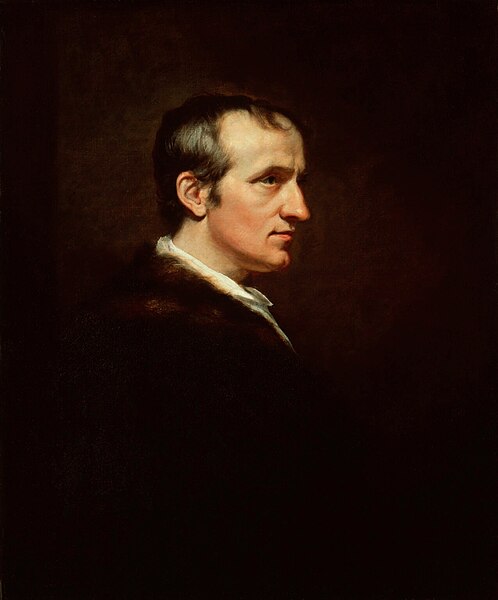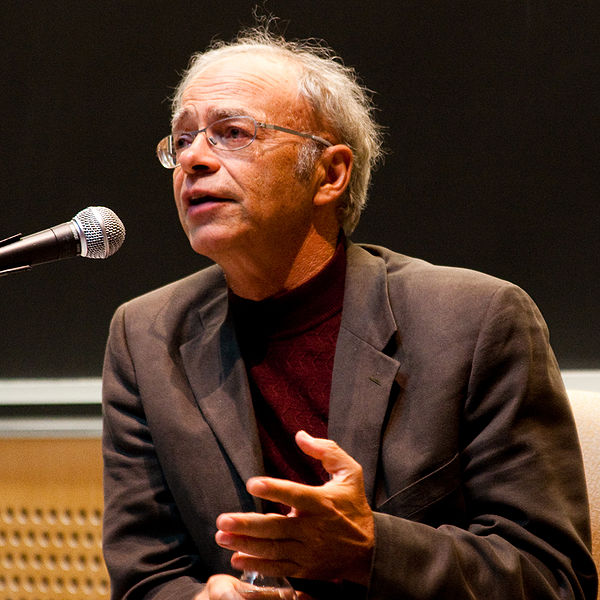William Godwin was an English journalist, political philosopher and novelist. He is considered one of the first exponents of utilitarianism and the first modern proponent of anarchism. Godwin is most famous for two books that he published within the space of a year: An Enquiry Concerning Political Justice, an attack on political institutions, and Things as They Are; or, The Adventures of Caleb Williams, an early mystery novel which attacks aristocratic privilege. Based on the success of both, Godwin featured prominently in the radical circles of London in the 1790s. He wrote prolifically in the genres of novels, history and demography throughout his life.
Portrait by Henry William Pickersgill
James Northcote, William Godwin, oil on canvas, 1802, the National Portrait Gallery
Mary Wollstonecraft by John Opie (c. 1797)
In ethical philosophy, utilitarianism is a family of normative ethical theories that prescribe actions that maximize happiness and well-being for the affected individuals. In other words, utilitarian ideas encourage actions that ensure the greatest good for the greatest number. Although different varieties of utilitarianism admit different characterizations, the basic idea behind all of them is, in some sense, to maximize utility, which is often defined in terms of well-being or related concepts. For instance, Jeremy Bentham, the founder of utilitarianism, described utility thus:That property in any object, whereby it tends to produce benefit, advantage, pleasure, good, or happiness ... [or] to prevent the happening of mischief, pain, evil, or unhappiness to the party whose interest is considered.
Jeremy Bentham
Peter Singer





